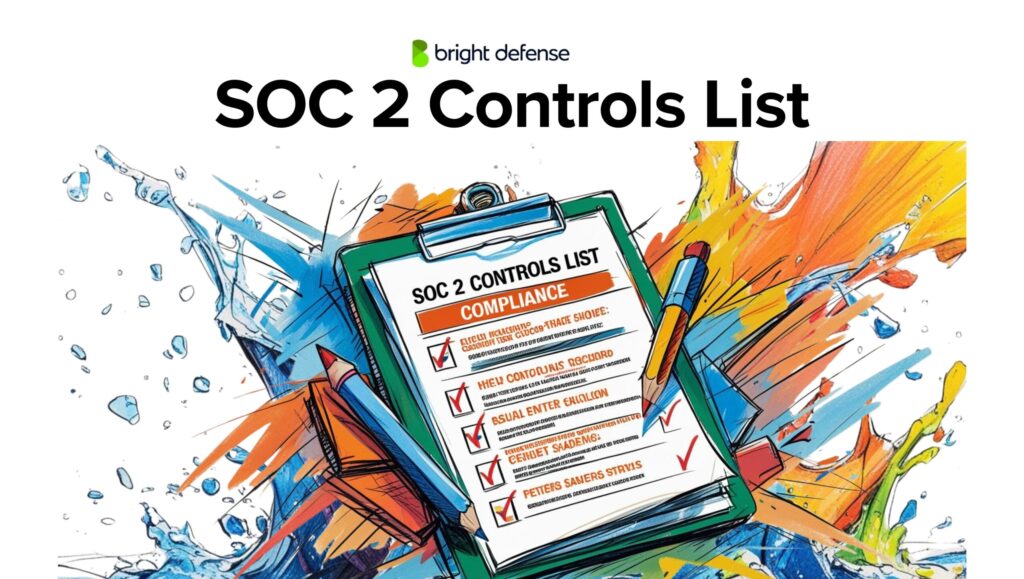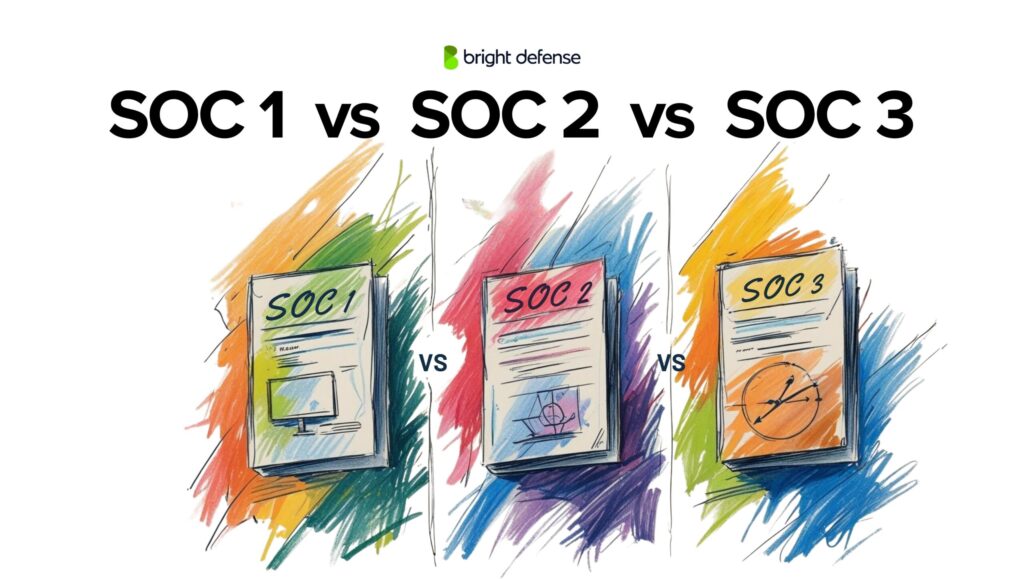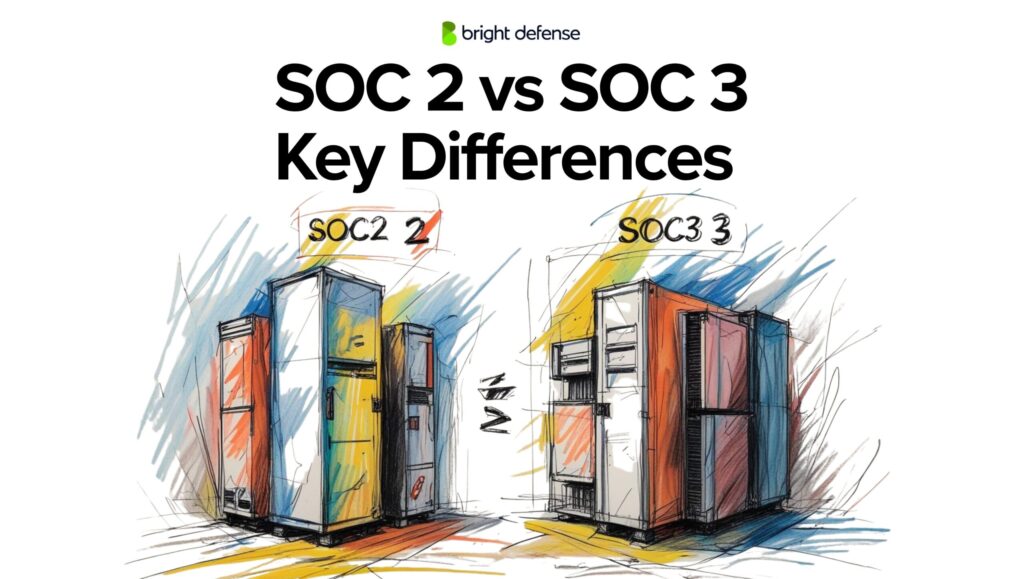
John Minnix - Compliance Strategist
June 28, 2025
The Benefits of a NIST 800-171 Compliance Consultant
For organizations that handle sensitive information, regulatory compliance is not just a best practice—it’s a necessity. Achieving compliance with NIST 800-171, a comprehensive framework designed to safeguard Controlled Unclassified Information (CUI), can be complex and daunting. This is where a NIST 800-171 compliance consultant becomes an invaluable partner on your compliance journey.
At Bright Defense, we understand businesses’ challenges when meeting these rigorous standards. In this blog post, we’ll explore the intricate world of NIST 800-171 compliance and dive deep into the many benefits of enlisting the expertise of a NIST 800-171 consultant. Whether you’re just beginning your compliance journey or seeking to enhance your existing security measures, we will uncover how a NIST 800-171 consultant can simplify the process and fortify your organization’s cybersecurity defenses.
Let’s get started!

Understanding NIST 800-171
What is NIST 800-171?
NIST 800-171, short for National Institute of Standards and Technology Special Publication 800-171, is a set of cybersecurity guidelines and standards developed by the National Institute of Standards and Technology (NIST), a part of the U.S. Department of Commerce. This framework is specifically designed to enhance the security of Controlled Unclassified Information (CUI) in non-federal systems and organizations. CUI refers to sensitive but unclassified information that requires protection against unauthorized access and disclosure.
Why is NIST 800-171 Important?
NIST 800-171 serves a critical role in bolstering cybersecurity for businesses and organizations, particularly those that work with the U.S. federal government, its agencies, or entities that share sensitive information. Here are some key reasons why NIST 800-171 is important:
- Legal and Regulatory Compliance: For organizations that handle CUI, compliance with NIST 800-171 is often mandated by contracts or agreements with government agencies. Failure to comply can result in penalties, legal consequences, and the loss of government contracts.
- Protection of Sensitive Information: CUI encompasses a wide range of information, including financial records, proprietary data, and personally identifiable information (PII). Compliance with NIST 800-171 helps safeguard this information against cyber threats and breaches.
- Cybersecurity Best Practices: NIST 800-171 provides a comprehensive framework of cybersecurity best practices. Following these guidelines can strengthen an organization’s overall cybersecurity posture, reducing the risk of data breaches and cyberattacks.
- Enhanced Trust: Complying with NIST 800-171 demonstrates an organization’s commitment to data security and privacy. It can enhance trust among clients, partners, and stakeholders, leading to better business relationships.

Key Components of NIST 800-171
NIST 800-171 consists of 14 families of security requirements, each addressing specific aspects of cybersecurity. These families include:
- Access Control: Limiting system access to authorized users.
- Awareness and Training: Ensuring employees are aware of security policies and receive adequate training.
- Audit and Accountability: Generating audit logs and regularly reviewing them for security incidents.
- Configuration Management: Managing and controlling system configurations.
- Identification and Authentication: Verifying the identity of users and devices.
- Incident Response: Developing and implementing an incident response plan.
- Maintenance: Regularly updating and patching systems.
- Media Protection: Protecting and controlling media containing CUI.
- Physical Protection: Securing physical access to information systems.
- Personnel Security: Screening employees and contractors.
- Risk Assessment: Identifying and managing security risks.
- Security Assessment and Authorization: Assessing and authorizing system security.
- System and Communications Protection: Protecting the integrity and confidentiality of data in transit.
- System and Information Integrity: Detecting and responding to security anomalies and malware.
Compliance with NIST 800-171 involves implementing security controls and practices within these families to safeguard CUI effectively.
In summary, NIST 800-171 is a vital cybersecurity framework designed to protect sensitive information held by both defense contractors and organizations outside the federal government. It not only ensures compliance with legal and contractual requirements but also enhances overall cybersecurity resilience, making it a critical consideration for businesses and organizations handling Controlled Unclassified Information.

Introduction to Key Benefits of NIST 800-171 Consultant
In this section, we’ll delve into the invaluable advantages that partnering with a NIST 800-171 consultant brings to the table. From expert guidance and customized strategies to streamlined compliance processes, we’ll explore how these professionals play a pivotal role in fortifying your organization’s cybersecurity defenses while ensuring adherence to NIST 800-171 standards. Let’s unpack the key benefits that await those who recognize the significance of NIST 800-171 compliance consulting services.
Benefit From Expertise in the NIST Framework
NIST 800-171 consultants possess deep expertise in the NIST framework, offering organizations a wealth of knowledge to navigate complex compliance requirements effectively. Their familiarity with the intricacies of NIST guidelines ensures that your compliance efforts are accurate, comprehensive, and aligned with the latest standards. With their expert guidance, you can confidently navigate the compliance landscape, knowing that your cybersecurity measures are anchored in best practices.
NIST 800-171 consultants also bring a wealth of industry knowledge and best practices to the table. They are well-versed in the latest trends and developments in cybersecurity, ensuring that your organization benefits from up-to-date strategies. By leveraging their expertise, you can implement robust cybersecurity measures that go beyond compliance, providing an added layer of protection against emerging threats. This access to best practices equips your organization with the tools and strategies needed to maintain a strong and resilient cybersecurity posture, giving you a competitive edge in the ever-evolving landscape of digital security.
Streamline the Compliance Process
Navigating the intricate requirements of NIST 800-171 can be time-consuming and resource-intensive. However, NIST 800-171 consultants are adept at streamlining the compliance process. They have the expertise to efficiently guide your organization through each step, ensuring that you save valuable time and resources. With a consultant, you can simplify the compliance journey, reduce administrative burdens, and focus on core business operations while maintaining a strong commitment to NIST 800-171 compliance.
While there may be an initial investment in hiring a NIST 800-171 consultant, their expertise can lead to significant long-term cost savings. By preventing potential fines and penalties for non-compliance, consultants help you avoid costly legal consequences. Moreover, their streamlined compliance processes and efficient risk management strategies can reduce the financial impact of security incidents. In the end, partnering with a consultant is not just a wise investment in compliance but also a cost-effective way to safeguard your organization’s assets and reputation.

Risk Assessment and Management
One of the key benefits of working with a NIST 800-171 consultant is their ability to conduct comprehensive risk assessments. They thoroughly evaluate your organization’s cybersecurity landscape to identify vulnerabilities, potential threats, and areas of concern. Once risks are identified, consultants help develop effective strategies to mitigate these risks, enhancing your overall security posture. This proactive approach not only ensures NIST 800-171 compliance but also protects your organization from potential cybersecurity threats.
Audit Preparation and Confidence
One of the critical aspects of NIST 800-171 compliance is the preparation for audits and assessments. Navigating these evaluations can be a daunting task for organizations. However, with a NIST 800-171 consultant on your side, you can approach audits with confidence.
Consultants assist in preparing your organization for the auditing process, ensuring that you have the necessary documentation, policies, and procedures in place. Their expertise helps you present a well-organized and compliant image to auditors, reducing the stress and uncertainty often associated with compliance assessments. With a consultant’s guidance, you can approach audits as an opportunity to showcase your dedication to cybersecurity best practices and NIST 800-171 compliance, instilling trust and confidence in your stakeholders.

Long-Term Partnership for Cybersecurity
Hiring a NIST 800-171 consultant is not just a short-term solution. It paves the way for a long-term partnership focused on cybersecurity. As the digital landscape and compliance requirements continue to evolve, your consultant remains a trusted ally in adapting to these changes.
By cultivating a lasting relationship with a consultant, your organization gains a valuable resource for staying informed about emerging threats, evolving compliance standards, and the latest cybersecurity technologies. This partnership ensures that your cybersecurity measures remain current and effective, providing ongoing protection against potential risks. Whether you’re addressing new compliance challenges or seeking to fortify your security posture, a NIST 800-171 consultant is a reliable partner committed to helping your organization thrive in an ever-changing digital environment.
Expanding Expertise Beyond NIST 800-171: Bridging the Compliance Gap
Compliance requirements extend beyond NIST 800-171. Organizations often find themselves navigating multiple compliance frameworks, each with its unique set of demands. Fortunately, NIST 800-171 consultants bring a wealth of expertise that can extend beyond the boundaries of this specific framework, making them invaluable assets in managing a broader spectrum of compliance requirements.
One of the key advantages of partnering with NIST consultants is their ability to bridge the compliance gap by offering insights and guidance into other important frameworks such as SOC 2, HIPAA, CMMC (Cybersecurity Maturity Model Certification), and ISO 27001. By leveraging the expertise of a NIST 800-171 consultant, organizations gain a versatile resource capable of navigating multiple compliance landscapes effectively.

Bright Defense Delivers Continuous NIST 800-171 Compliance
If you are looking to achieve of maintain compliance with NIST 800-171 or similar frameworks, Bright Defense can help. Our continuous compliance services will help you build a robust cybersecurity program and implement the required controls to achieve compliance with NIST. We also offer risk assessments, gap analysis services, managed security awareness training, and multifactor authentication solutions.
In addition we offer SOC 2, HIPAA, ISO 27001, and CMMC compliance services. This makes Bright Defense a fit for all of your compliance needs. If you are ready to improve your cybersecurity standards and achieve compliance, contact us today!
Frequently Asked Questions (FAQ) – NIST 800-171 Compliance and Security Controls
1. What is NIST 800-171 compliance, and why is it essential for government contractors?
NIST 800-171 compliance refers to adhering to the cybersecurity standards outlined in the National Institute of Standards and Technology’s Special Publication 800-171. It is crucial for government contractors, especially DoD contractors, as it establishes the security controls necessary for protecting Controlled Unclassified Information (CUI) within federal information systems. Compliance is often required for organizations in the defense industrial base seeking to win or maintain contracts with the United States Department of Defense.
2. Who is responsible for ensuring NIST 800-171 compliance within organizations?
NIST 800-171 compliance is a shared responsibility within organizations. Prime contractors, subcontractors, and all entities handling CUI data must work together to ensure compliance. This collaborative approach is critical for securing the supply chain and safeguarding sensitive information.
3. What are the consequences of not achieving NIST 800-171 compliance?
Contractors risk losing or not being awarded new contracts with the U.S. Department of Defense if they fail to meet NIST 800-171 compliance requirements. Non-compliance may also expose organizations to legal liabilities and reputational damage.
4. What is the difference between self-assessment and third-party assessment in NIST 800-171 compliance?
Self-assessment involves organizations evaluating their compliance against NIST 800-171 controls internally. A third-party assessment, on the other hand, is conducted by an external entity, often a certified auditor or assessor, to independently verify compliance. Third-party assessments provide an objective evaluation, which can be especially valuable for organizations seeking to build trust with government agencies and prime contractors.
5. How can organizations streamline the compliance process for NIST 800-171?
Streamlining the compliance process involves implementing a systematic approach. Start by understanding the CUI requirements specific to your contracts. Then, assess your existing security controls and practices. Develop a plan to address gaps and implement necessary changes. Regular monitoring, continuous improvement, and documentation are key to maintaining compliance efficiently.
6. What steps can contractors take to address NIST 800-171 requirements in their supply chain?
Contractors should communicate NIST 800-171 compliance expectations to their supply chain partners. It’s essential to assess the cybersecurity practices of suppliers, subcontractors, and vendors and ensure that they also meet compliance standards. Collaborative efforts, including sharing compliance documentation, can help build a secure and resilient supply chain.
7. How often should organizations review and update their NIST 800-171 compliance processes?
NIST 800-171 compliance is not a one-time process but an ongoing commitment. Organizations should regularly review and update their compliance processes, especially when there are changes in regulations, contractual requirements, or their systems and processes. Regular assessments and audits are critical to maintaining compliance over time.
8. Can NIST 800-171 compliance efforts help organizations secure non-government contracts and improve overall cybersecurity?
Yes, NIST 800-171 compliance efforts can extend beyond government contracts. Many private-sector organizations recognize the value of these security controls and compliance practices in enhancing their overall cybersecurity posture. Achieving compliance can be a competitive advantage when dealing with partners, clients, and stakeholders who prioritize data security.
Get In Touch



